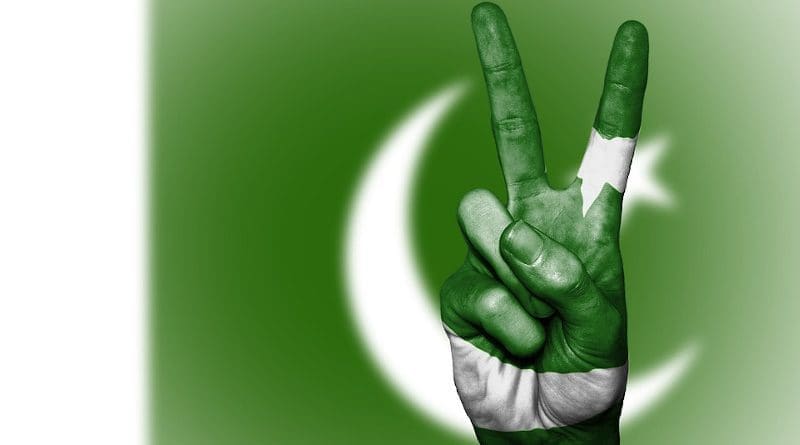Pakistan: Democracy In Action – OpEd
By Dr. Sahibzada Muhammad Usman
In the bustling heart of Pakistan, as the early dawn stretched its fingers across the sky in February 2024, an air of anticipation mingled with the morning mist. This wasn’t just another day; it was the day of the election, a testament to the country’s enduring spirit of democracy and freedom. The streets, usually teeming with the cacophony of daily life, hummed with conversations of hope and change. It was a day when every citizen stood on the cusp of history, ready to play their part in shaping the future of their nation.
The first whisper of this monumental day’s uniqueness was the freedom that enveloped the media landscape. Journalists, broadcasters, and digital scribes alike found themselves wielding the might of the pen and the power of the airwaves with an unprecedented level of autonomy. The stories that unfolded on screens and in print were not marred by the shadow of censorship or the chains of restraint. Instead, they painted the vibrant tableau of a nation’s aspirations, fears, and dreams, all converging at the ballot box. This freedom wasn’t just about reporting facts; it was about narrating the pulse of a nation poised on the brink of choosing its destiny.
As the day unfolded, the polling stations across the country became arenas of democracy in action. The turnout was not just good; it was a resounding declaration of the people’s will to be heard. Men and women from all walks of life, from the bustling urban centers to the serene rural landscapes, formed queues that snaked around corners and stretched into the horizon. The young and the old, the first-time voters with stars in their eyes, and the seasoned electors with memories of ballots past—all were united by a common purpose. Casting a vote wasn’t just a civic duty; it was a celebration of freedom, a chorus of voices rising in unison to say, “We matter.”
This ease of casting a vote was a testament to the country’s commitment to ensuring that every citizen, regardless of their station in life, could participate in the democratic process. Accessibility was not an afterthought but a cornerstone of the electoral system. Special arrangements for the elderly and differently-abled, mobile apps to guide the undecided, and a robust system to ensure that even the farthest-flung citizen could make their vote count—these were the hallmarks of an inclusive approach to democracy.
Amidst this fervor of participation, the security situation stood as a silent guardian of peace. The specter of violence, which had cast long shadows over previous elections, seemed to have been banished, at least for the day. Security forces, a blend of vigilance and restraint, ensured that the only battles fought were those of ideologies and words. This peace was not a happy accident but the fruit of meticulous planning, a society’s collective will to choose ballots over bullets, and the understanding that true power lies in the hands of the people.
The fairness and freedom of this election were not just slogans echoed in the corridors of power; they were visible, tangible realities. International observers, the sentinels of democracy’s integrity, found little to fault. Their preliminary reports spoke of an election that stood as a beacon of hope in a region often mired in turmoil. Critics and cynics, always ready with their pens poised for condemnation, found themselves pausing, searching for flaws that were few and far between.
But perhaps the true essence of this election lay not in the reports, the turnout, or even the peaceful atmosphere. It was in the stories that would never make the headlines—the silent prayers whispered in the heart of a mother as she cast her vote, hoping for a brighter future for her child; the twinkle in the eyes of an elderly man who had seen the country through wars and peace, casting yet another ballot in the belief that democracy, for all its flaws, was still worth fighting for; the nervous excitement of a young woman voting for the first time, feeling the weight of her contribution to her country’s path.
These stories, these moments, were the true victories of the February 2024 election in Pakistan. They spoke of a resilience that transcends political divides, of a belief in the power of the collective will, and of a hope that, even in the face of challenges, a nation can come together to chart its course.
As the dusk settled on election day, and the frenetic pace of counting began, it was clear that this was more than just an exercise in selecting leaders. It was a reaffirmation of the values that form the bedrock of any democracy: freedom, participation, and the unyielding belief in the power of the vote. Pakistan, on that February day, did not just choose its leaders; it chose the path of hope, resilience, and the undying promise of a better tomorrow.
In the aftermath, as analysts’ pore over data and politicians negotiate alliances, the true measure of this election’s success lies in the quiet satisfaction of a people who have spoken. The journey ahead may be fraught with challenges, but the resolve shown by the citizens of Pakistan serves as a beacon of light not just for themselves, but for democracies everywhere.
This election was a reminder that in the heart of every citizen lies the power to shape the destiny of their nation. It was a celebration of freedom, a testament to the resilience of the human spirit, and a declaration that, even in the most trying of times, the voice of the people can and will triumph. As Pakistan moves forward, it does so with the knowledge that its strength lies in its diversity, its democracy, and the unbreakable will of its people.

